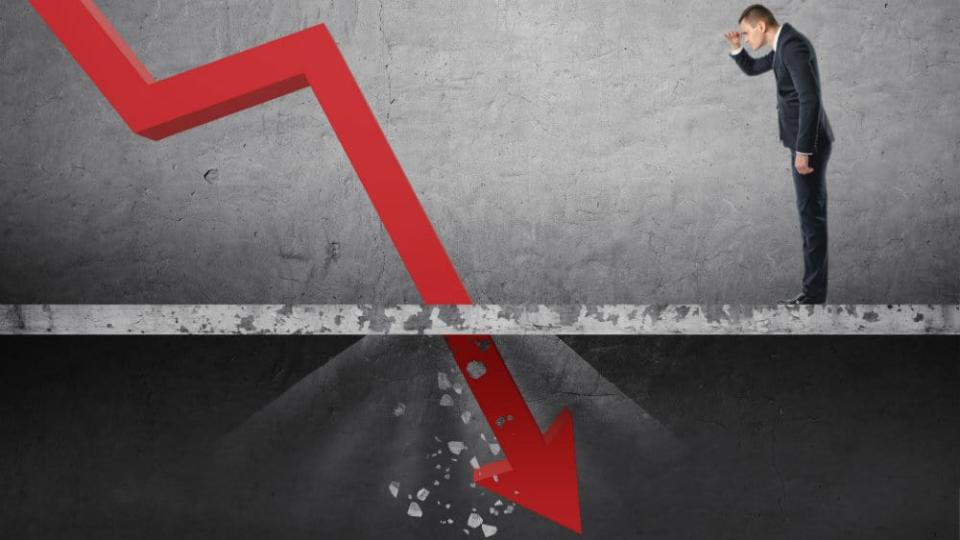2010s Recap: 3 of the Worst-Performing TSX Stocks of the Decade

The 2010s weren’t a great time for Canadian stocks. While U.S. markets soared, Canadian markets stagnated, resulting in a modest 45% gains for investors who bought and held the TSX index. But this generally lacklustre decade did not treat all stocks equally. As always, there were winners and losers, with energy stocks in particular having produced some notable duds.
With that in mind, here are three stocks that were among the worst-performing of the decade.
Baytex Energy
Baytex Energy (TSX:BTE)(NYSE:BTE) was one of the biggest TSX losers of the 2010s.
Trading at around $30 in January of 2010, it was down to just $1.71 as of this writing — a stunning 94% decline.
The two main culprits for Baytex’s decline were weak energy prices and debt.
As an energy exploration/extraction company, Baytex depends on high crude/LNG prices to turn a profit. Unfortunately, around 2014, oil prices started tanking worldwide and haven’t completely recovered since then. This factor alone put a big dent into Baytex’s profitability.
On top of that, the company also finished 2015 with a mountain of debt (about $2.2 billion), resulting in enormous interest charges. That made it even harder for this company to be profitable, and while it has been trying to get its debt load down, it’s still carrying around $2 billion in total liabilities.
BlackBerry
BlackBerry (TSX:BB)(NYSE:BB) isn’t a big name today. But in the past, it was one of the most popular TSX tech stocks around.
BlackBerry’s smartphone was an iconic product in its heyday. After the release of Apple’s iPhone, however, the company’s market share started to shrink, until eventually its sales were so small that it had a 0% share of the global smartphone market.
Lately, BlackBerry has been restructuring itself. Positioning itself as a developer of highly secure enterprise software, it has won some big contracts with companies like CP Rail. Additionally, its smart car software is reportedly being used by 120 million customers. These are encouraging developments. However, they so far haven’t stopped BlackBerry’s dramatic slide, which has seen it fall 97% during the 2010s.
Bombardier
Bombardier (TSX:BBD.B) is a stock that has seen better days. Having hit its all-time high in 2000, it’s been downhill since then. During the 2010s, the stock has shed about 61% of its value.
Why has BBD.B had such a rough go of it?
It comes down to the balance sheet. Over the years, the company has embarked on a number of projects that left it over-leveraged, resulting in the need to sell off business units. As a result, the company lacks the kind of revenue engines it once had.
A major fiasco for the company was the CSeries Jet. This was a medium-sized corporate jet that was predicted to generate $250 billion in revenue from Bombardier over the course of 20 years. This seemed well worth the initially estimated $2.1 billion cost; however, the project ended up costing far more than it was supposed to, and demand was not as strong as Bombardier had hoped.
In the end, the company transferred 50.1% of the project to Airbus and focused on improving its balance sheet. That didn’t save the stock, however, which ended up having yet another losing year in 2019.
More reading
CPP Pension Users: 2 Crafty Ways to Avoid the 15% OAS Clawback
3 Ways to Earn as Much as 135% in 2020 (While Keeping the CRA Away)
Fool contributor Andrew Button has no position in any of the stocks mentioned. David Gardner owns shares of Apple. The Motley Fool owns shares of and recommends Apple. The Motley Fool recommends BlackBerry and BlackBerry.
The Motley Fool’s purpose is to help the world invest, better. Click here now for your free subscription to Take Stock, The Motley Fool Canada’s free investing newsletter. Packed with stock ideas and investing advice, it is essential reading for anyone looking to build and grow their wealth in the years ahead. Motley Fool Canada 2019

 Yahoo Finance
Yahoo Finance 